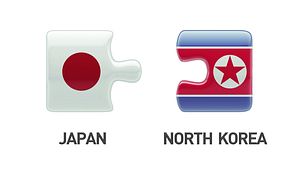At the ASEAN Regional Forum (ARF) last weekend in Myanmar’s capital of Naypyitaw, Japan, South Korea and the U.S. reaffirmed their intention to cooperate over North Korea’s ballistic missile and nuclear programs. The sideline meeting shows the three allies still have no problems cooperating over North Korea, although there were still a few wrinkles to work out. Japan is concerned that its bilateral negotiations with Pyongyang don’t affect its traditional alliance, while the attendance of North Korea’s Foreign Minister Ri Su Yong allowed for a somewhat rare high-level meeting with a North Korean official.
The meeting of the three allies’ foreign ministers and their joint statements were standard for such a meeting, yet North Korea’s recent behavior colored their interaction somewhat. One of the main reasons was that Japanese Foreign Minister Fumio Kishida held a sideline meeting with Ri as well, the first time their foreign ministers have met since 2004. The two discussed the ongoing investigation into abducted Japanese citizens, with Kishida calling on Pyongyang to adhere to their agreement and file an initial report by early fall at the latest. The Jiji Press reported that Ri likely responded with a request for reparations for Japan’s colonial rule, and an expedited normalization of bilateral ties.
However, Kishida was quick to reassure his South Korean and American allies, saying Japan is committed to ensuring the transparency of its talks with the Hermit Kingdom. According to the Japan Times he assured them that the abduction issue was important for the world as a whole, saying the issue pertains not only to “the sovereignty of Japan and the lives and safety of its citizens, but also the international community as the abductions have violated fundamental human rights.”
For all parties, this was a rare and important meeting with Ri. The foreign minister has a special relationship with North Korea’s leader Kim Jong-un, as he was part of the new leader’s entourage while he attended high school in Switzerland, as well as formerly serving as ambassador to Bern. So is Ri likely to have a direct line of communication to Kim, and the ARF is the only multilateral forum that he attends.
While Ri’s appearance was indeed unique, it does not appear that the U.S. or South Korea made any attempts to speak bilaterally. Their statements on North Korea were fairly routine, with U.S. Secretary of State John Kerry calling on Pyongyang to halt its nuclear program and allow International Atomic Energy Agency inspectors in, and South Korea’s Foreign Minister Yun Byung-se saying that North Korea was destabilizing the peninsula with its weapons programs and missile launches. While Japan echoed these statements, the abduction issue has given it the ability to create a dialogue on a larger stage than previously possible. Continued progress could perhaps lead to Japan being able to influence Pyongyang in other areas, assuming that North Korea submits a satisfactory report to Tokyo, and further normalization between the two is allowed to go forward.

































